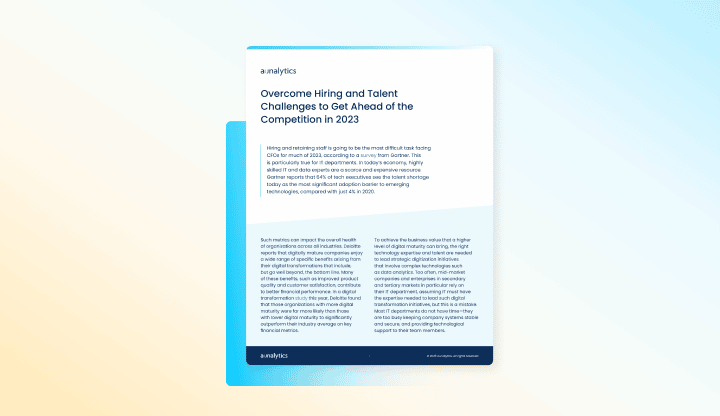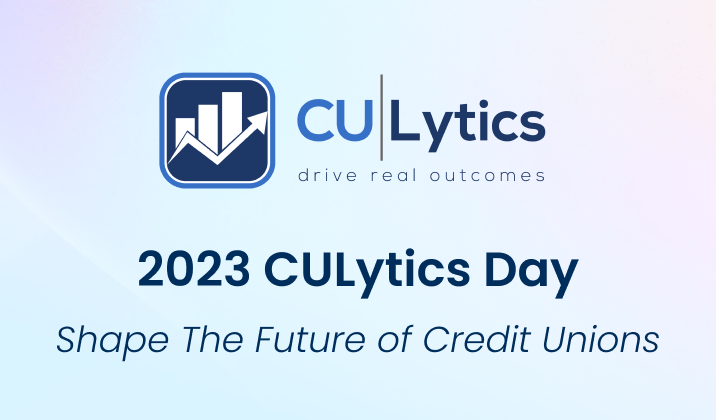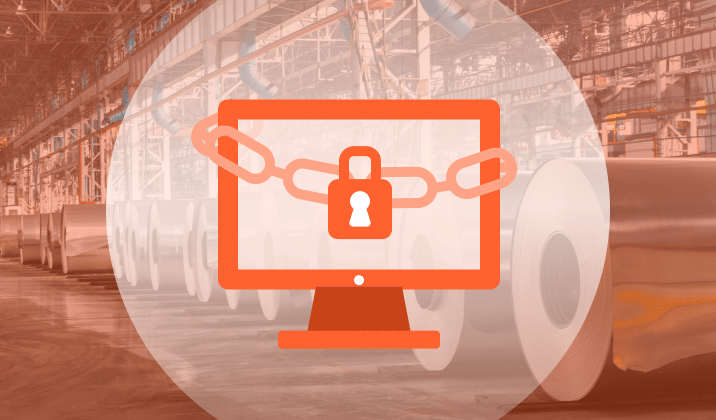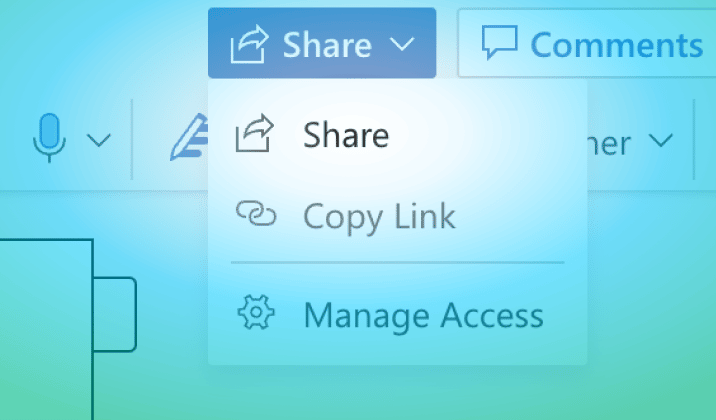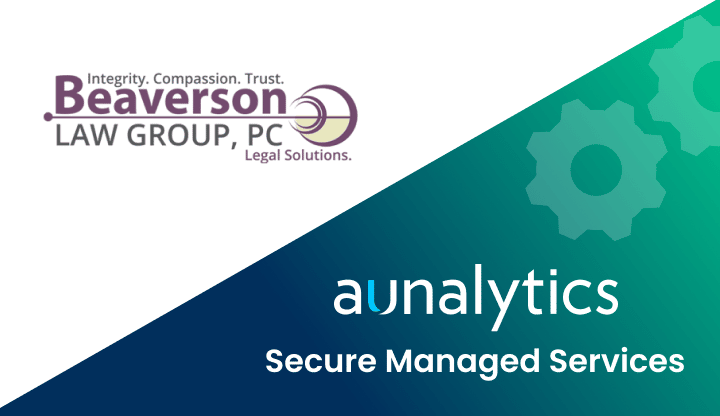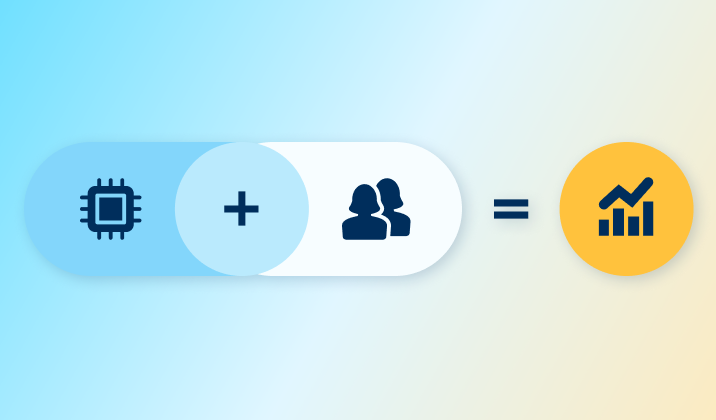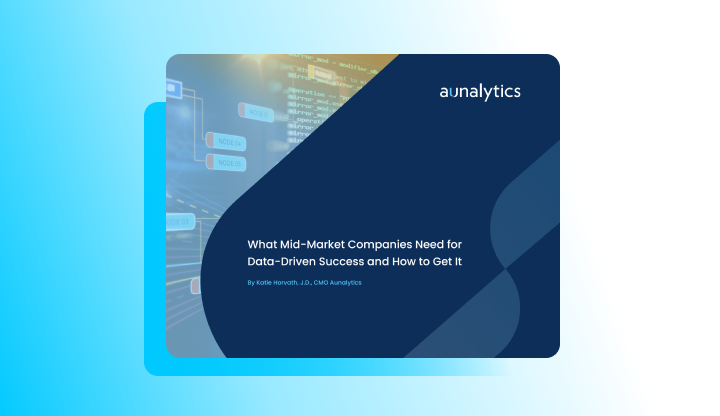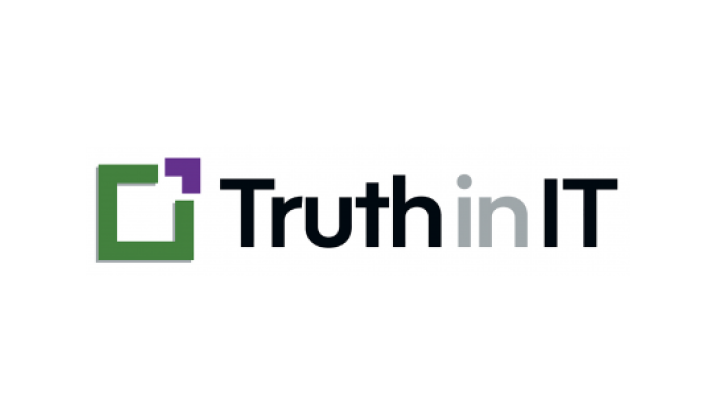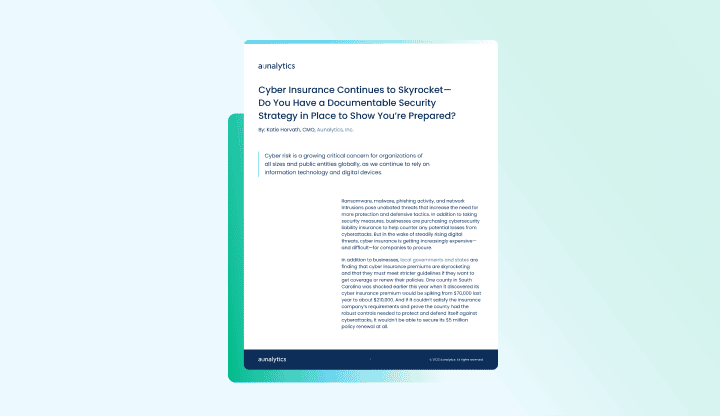Overcome Hiring and Talent Challenges to Get Ahead of the Competition in 2023
Overcome Hiring and Talent Challenges to Get Ahead of the Competition in 2023
Hiring and retaining staff is going to be the most difficult task facing CFOs for much of 2023. This is particularly true for IT departments. In today’s economy, highly skilled IT and data experts are a scarce and expensive resource. The mid-market organization requires another option that provides access to the right tools, resources, and support.
Related Content
Ransomware Attacks in Manufacturing Pose An Increasing Threat
Cyberattacks are a constant threat to organizations of all sizes. Manufacturing and production industries may have experienced fewer cyberattacks than other industries, but companies are still at risk from bad actors. To gain a better understanding of the current attack environment and track changes over time in ransomware trends, Aunalytics security partner Sophos commissioned an independent, vendor-agnostic survey of 5,600 IT professionals in mid-sized organizations across 31 countries. Out of all the respondents, 419 were from the manufacturing and production industry. This survey was conducted in January and early February of 2022. While it’s true cyber insurance has been playing a greater role in helping organizations improve their ability to recover from attacks, survey responses clearly indicate the rising threat ransomware poses to the manufacturing industry.
Cyberattacks Are Up From Previous Year
Ransomware attacks have increased significantly over the past year—55% of manufacturing and production organizations surveyed were hit by an attack in 2021, up 36% from 2020. Bad actors are now considerably more capable of attacking businesses and executing harmful tactics at scale. The Ransomware-as-a-Service model is one cause of this year’s increased attacks, as the required skill level for bad actors to hamper the day-to-day operations of an organization has gone down significantly.
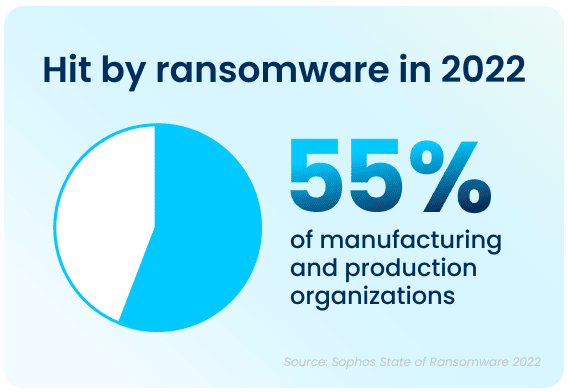
Apart from the rising prevalence of these attacks, the sheer complexity of each attack is also on an upwards trajectory. While the manufacturing and production industry reported the lowest rate of ransomware attacks, but, with over half of all respondents in all surveyed industries reporting that their company was been injured by bad actors, the reality is that every organization is at high risk of attack. In 2021, 57% of attacks in the manufacturing and production industry resulted in important data being encrypted. Additionally, 59% percent of organizations who experienced cyberattacks saw the complexity of the attacks increase, while 61% saw an increase in the overall volume of cyberattacks.
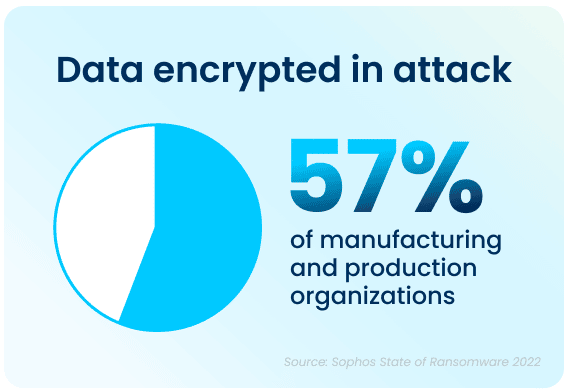
Data Recovery Rates Are Improving
While the increase in cyberattacks paints a bleak picture, there is a silver lining to this dark cloud. 96% of manufacturing and production organizations were able to get some of their encrypted data back. The top method used to restore data was backups, which were used by 58% of organizations whose data was encrypted in an attack. Unfortunately, despite the utilization of backups, a third of the effected organizations still had to pay a ransom to ensure that more their data was restored.
Unfortunately, while paying a ransom typically allows organizations to get some data back, it is proving to be less effective than in years past. On average, in 2021, organizations that paid a ransom only got back 59% of their data, and only 7% of those that paid the ransom got ALL of their data back. This highlights the importance of employing multiple methods to restore data—utilizing backups in particular can improve the speed of recovery and increase the amount of data that can be recovered in the event of an attack.
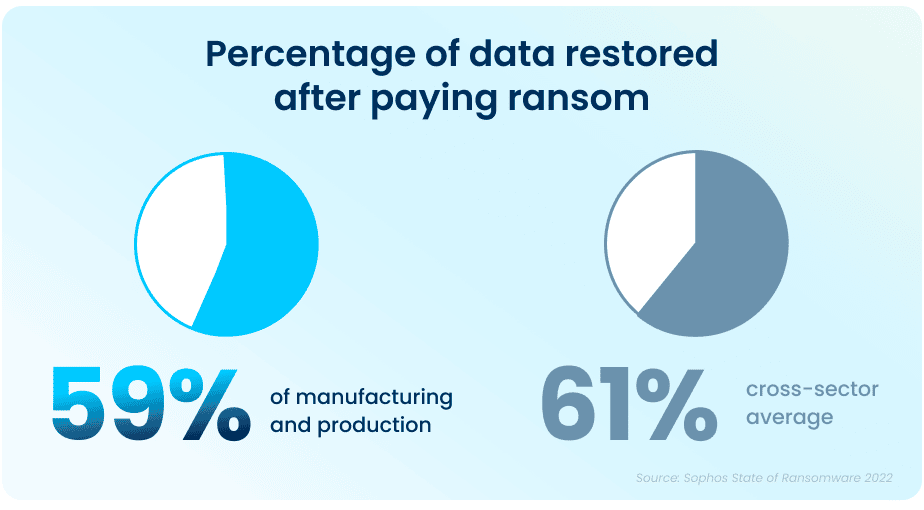
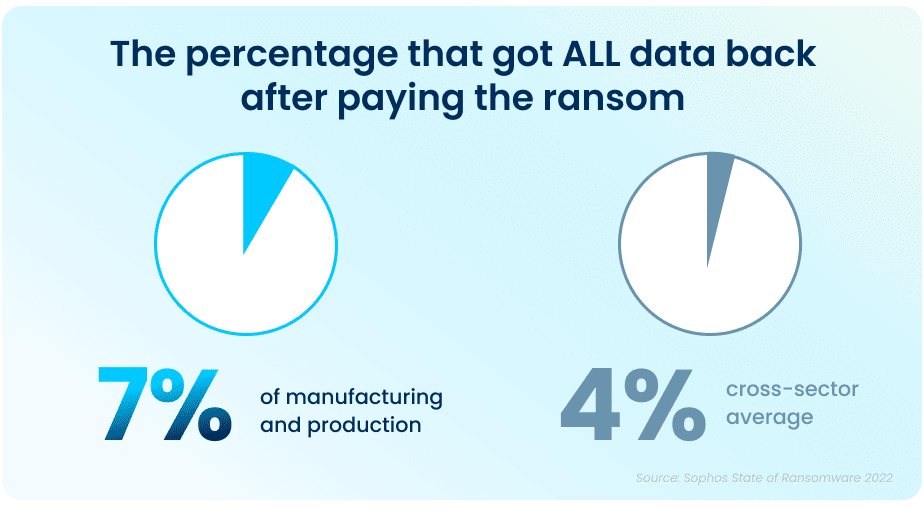
Ransom Payments Have Increased
The average ransom pay-out has seen an exponential increase from what was reported in 2020 data, rising from an average of $147K (USD) to a jaw-dropping $2,036,189 (USD) in 2021.
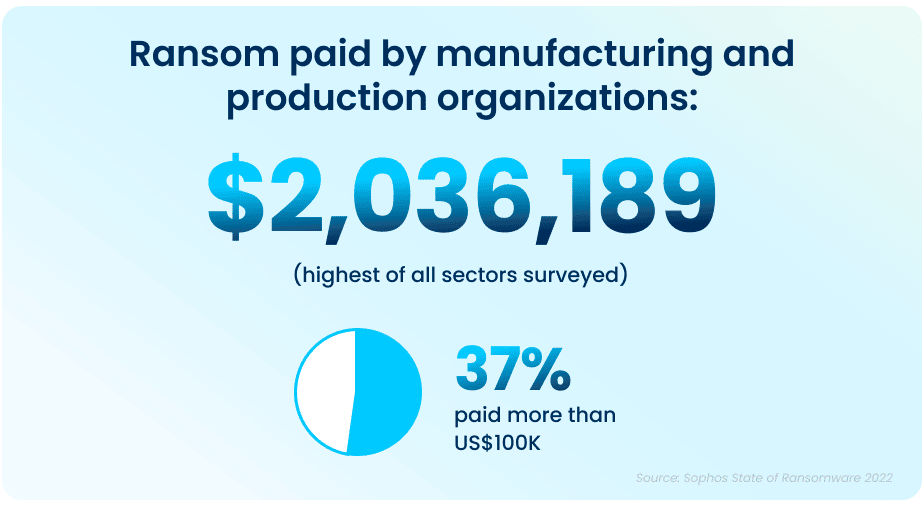
Ransomware Has a Massive Impact on a Company’s Financial Status and Operational Capacity
Even when some of the encrypted data is restored after a cyber-attack, there are additional costs in the form of lost productivity and a decline in operational capacity, which can have a considerable impact on your company. Of those hit by ransomware last year, 77% said their most significant attack impacted their ability to operate, while 71% said it caused them to lose business and/or revenue. The average cost to remediate an attack in 2021 was $1.23M (USD), down from $1.52M (USD) in 2020. This was due in part to cyber insurance providers being able to better guide victims through an effective response more rapidly.
Although there have been improvements in total recovery time over the years, it still took, on average, one week for manufacturing and production organizations to fully recover from the most significant attacks.
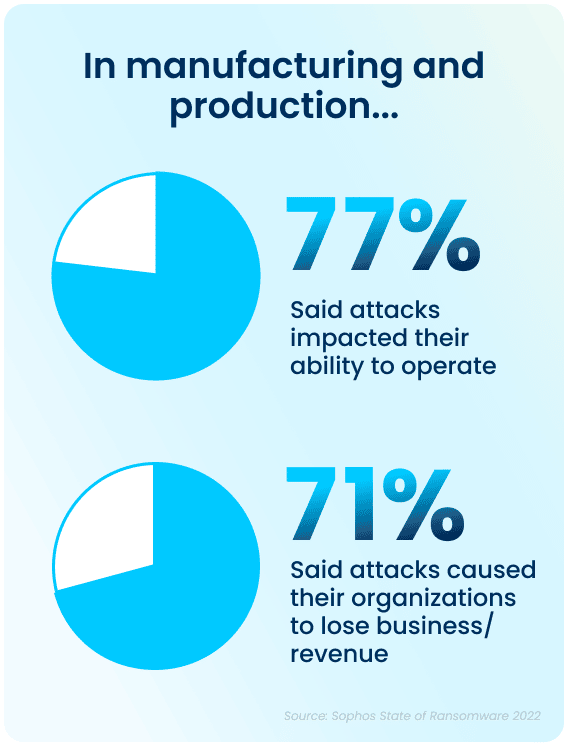
Despite the huge economic costs of ransomware attacks, many organizations are continuing to put their faith in defenses that don’t actually prevent ransomware—only more quickly mitigate its effects. Most of the organizations in the survey who weren’t hit by ransomware in the past year and didn’t expect to be hit in the future cited backups and cyber insurance as reasons why they don’t anticipate an attack. It’s important to note that neither of these elements can actually prevent cyber-attacks.
Simply having security mitigation resources in place does not mean that they will be effective against malicious attacks. Despite having ample resources—in both personnel and technology—organizations will not achieve a high return on investment without a combination of the right technology and expertise to use the technology effectively.
Cyber Insurance Drives Changes to Cyber Defenses
Thankfully, organizations do not have to shoulder the burden of ransomware costs all on their own. The survey found that three out of four manufacturing and production organizations had insurance against ransomware attacks. Organizations that had been previously hit by ransomware attacks in the past were much more likely to have cyber insurance coverage against ransomware. However, many respondents indicated that securing coverage has changed or gotten more difficult to obtain in the past year:
- 56% said the level of cybersecurity they need to qualify is now higher
- 53% said policies are now more complex
- 42% said it is more expensive
- 35% said fewer companies offer cyber insurance
- 30% said the process takes longer
As a result, 97% of organizations that have cyber insurance have made changes to their cyber defenses to improve their cyber insurance position. 70% have implemented new technologies and services, while 63% have increased staff training and educational activities, and 59% have changed processes and behaviors.
But It Doesn’t End There
The State of Ransomware 2022 survey by Sophos has revealed that ransomware continues to be an imminent threat for the manufacturing and production industry. For many, choosing an experienced partner with expertise in cybersecurity not only improves their chances of getting approved for the right amount of cyber insurance coverage, but can also ensure that companies see an higher return on investment and improved ability to both prevent and mitigate attacks in the future.
Catalyst University 2023
Catalyst University 2023
Radisson Plaza Hotel, Kalamazoo, MI
Aunalytics to Attend 2023 Catalyst University
Aunalytics is excited attend Southwest Michigan First’s Catalyst University 2022 in Kalamazoo, MI. Aunalytics is participating as a speaker sponsor and is pleased to present Mitch Albom, who is a best-selling author, journalist, screenwriter, playwright, radio and television broadcaster, and musician.
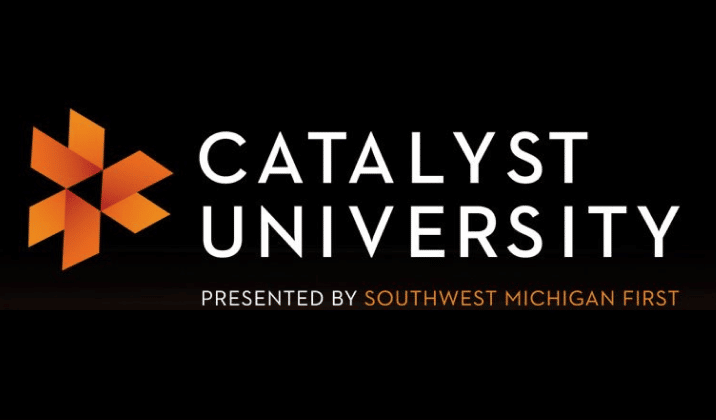
Poor Document Sharing Strategies May Share Too Much Information with Bad Actors
To share documents across your organization, it may be as easy as making a single click—but that doesn’t mean they are protected from malicious actors with bad intent. One mistake and you could be leaving holes in your security fabric, allowing hackers to access your company’s shared documents.
While file storing systems are a popular and useful solution, it can be dangerous to allow everyone in your company unimpeded access to everything they contain. Important company information, and many different files, live within document sharing applications—everything from job applications and budgets to employees’ personal information—which can make them a target for hackers. Document sharing applications can be risky if your company’s security and security training are not up to speed.
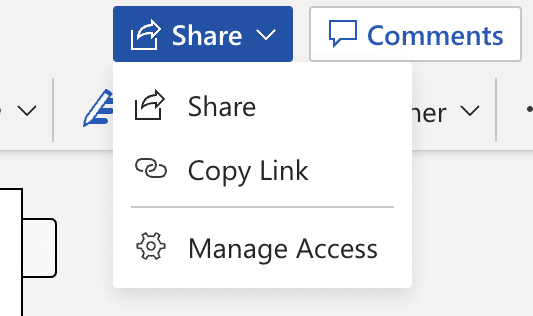
How can your organization ensure shared documents remain secure?
When looking to keep your document sharing application secure there are rules you and your employees should follow to ensure quality cyber security. A few of these rules include:
1. Use a password manager
A password manager can users track a multitude of passwords, allowing for a different, complex password for each work (or personal) login and account the user maintains. Utilize this idea to organize your passwords, maintain difficult to guess passwords, and keep track of each one in a secure digital location.
2. Enable multi-factor authentication
Multi-factor Authentication (MFA) requires you to perform a secondary action to finish logging into an account. MFA sends a message to a phone, or another device, providing you with a code that is needed to successfully log into your account. Without this code, anyone who has attained access to your email account cannot succeed in logging into your company’s network, even if they change your password and attempt to log in again.
3. Be choosy
Take the time to choose who can, should, and needs access to specific files and folders. If access is not essential to someone’s job, consider limiting their access to non-relevant portions of your document sharing solution. Removing access to HR or accounting files from someone who is in marketing may be a good choice to make. If someone needs a file from a location they do not have access to, many document sharing solutions allow you to create a link that expires after a certain amount of time. This link will only allow the receiver to view the file they need access to while they need access to it. After the link expires, the receiver will no longer be able to view the file.
4. Provide regular security awareness training
Regular cyber security awareness training sessions allow your employees to learn about new security concerns, kinds of attacks, and now to keep your organization safe from bad actors. Training employees to look for the signs of phishing, malware, ransomware, hackers, and security holes helps keep document sharing applications safe and secure.
When done right, document sharing is incredibly useful to every business, and can be done successfully by putting a little bit of extra effort into your cyber security planning. An experienced security partner can help keep your business safe from outside threats, allowing you peace of mind that your important files are secure and encrypted from bad actors.
Aunalytics, a secure managed services partner, can help you with everything from managing your IT services, to functioning as your SOC, and also provides advanced security services. With a focus on helping mid-market clients, Aunalytics works with you, step-by-step, to help you succeed your security goals.
Beaverson Law Group, PC Strengthens Cyber Defenses with Aunalytics Secure Managed Services
Beaverson Law Group, PC Strengthens Cyber Defenses with Aunalytics Secure Managed Services
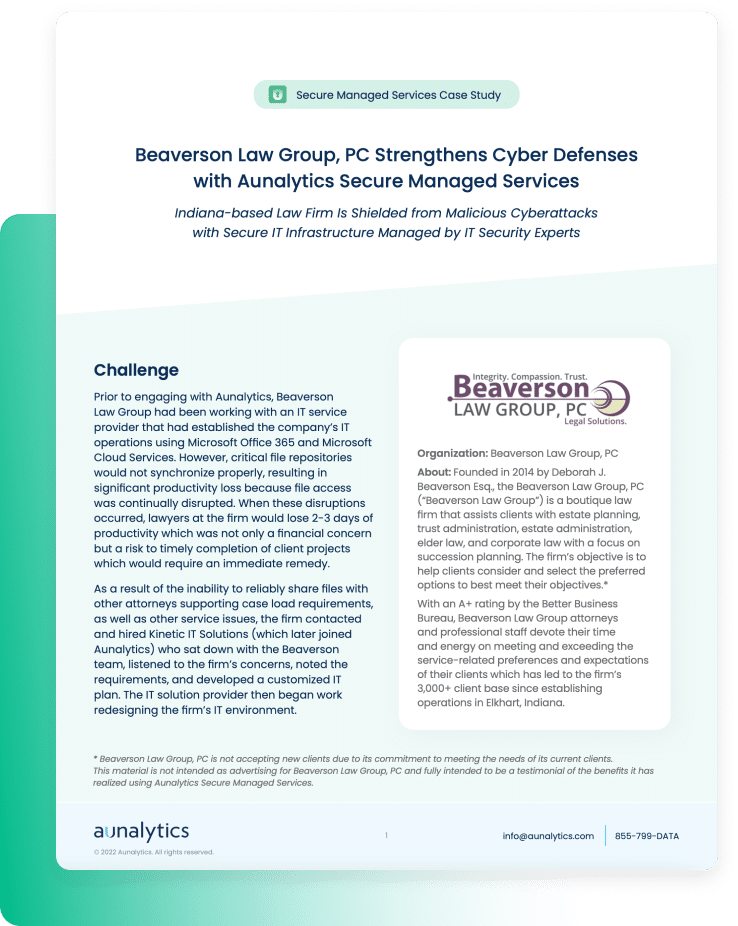
Fill out the form below to receive an email with a link to the case study.
Aunalytics is a data platform company. We deliver insights as a service to answer your most important IT and business questions.
Featured Content
Nothing found.
Beaverson Law Group, PC Strengthens Cyber Defenses with Aunalytics Secure Managed Services - PDF
Beaverson Law Group, PC Strengthens Cyber Defenses with Aunalytics Secure Managed Services
Related Content
Cyber Insurance Continues to Skyrocket—Do You Have a Security Strategy in Place?
Cyber Insurance Continues to Skyrocket—Do You Have a Documentable Security Strategy in Place to Show You’re Prepared?
Cyber risk is a growing critical concern for organizations of all sizes and public entities globally, as we continue to rely on information technology and digital devices. But in the wake of steadily rising digital threats, cyber insurance is getting increasingly expensive—and difficult—for companies to procure.
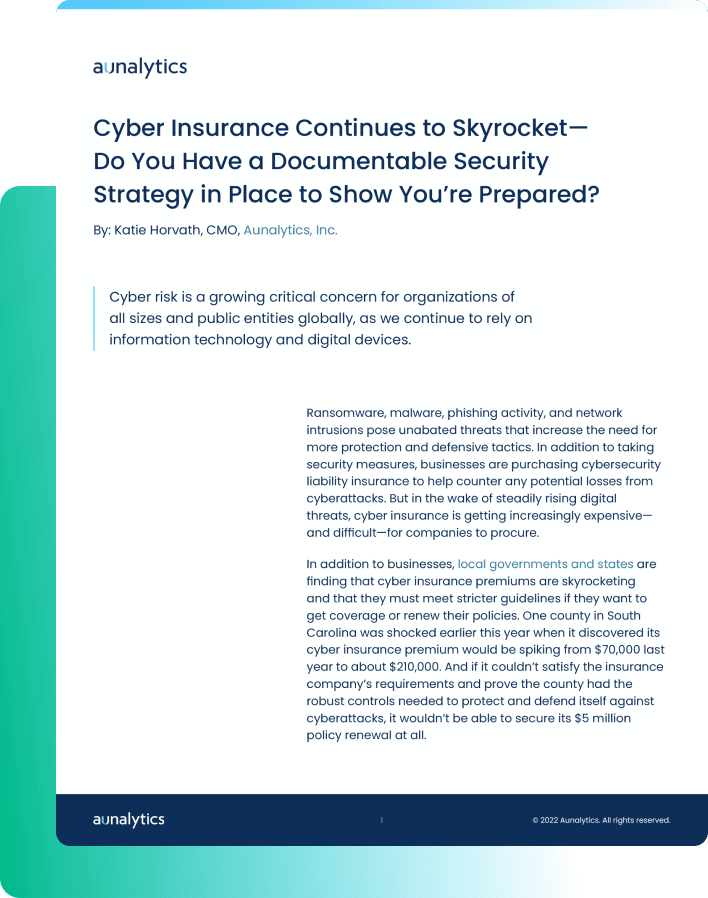
Fill out the form below to receive a link to the article.
Aunalytics is a data platform company. We deliver insights as a service to answer your most important IT and business questions.
Related Content
Cyber Insurance Continues to Skyrocket—Do You Have a Security Strategy in Place?
Cyber Insurance Continues to Skyrocket—Do You Have a Documentable Security Strategy in Place to Show You’re Prepared?
Cyber risk is a growing critical concern for organizations of all sizes and public entities globally, as we continue to rely on information technology and digital devices. But in the wake of steadily rising digital threats, cyber insurance is getting increasingly expensive—and difficult—for companies to procure.
Related Content
Increasingly Difficult Security Requirements Complicate Cyber Insurance Renewal
Have you received a cyber insurance renewal notice with a shocking sticker price? With an ever-increasing number of security incidents involving data breaches, ransomware, phishing scams and more, the cyber insurance landscape has changed. It’s no longer possible to get premium discounts for implementing certain security controls—more is now required. And, without enhanced security measures, you may not get cyber insurance at all.
Threats evolve over time, meaning your security posture needs to evolve in order to not only remain operational, but also be compliant to qualify for most insurance policies.
Insurance companies are now requiring more precautionary measures than ever before due to the constant—and costly—increase of threats. Premiums are increasing and coverage is being denied even for companies that have no history of breaches or claims—cyber insurance renewal rates have increased by up to 200% over the past two years, even for companies who have not made any claims.
The average cost of a data breach has raised from a massive $3.86 million in 2020 to a staggering $4.24 million in 2022.
The Solution

With the risks of operating in an increasingly digital world, cyber insurance is essential for your business to function and remain protected in the event of an attack. Aunalytics’ Advanced Security experts have the talent and technology to audit your security and discuss precautionary measures an insurance company may want you to take before renewal. With a dedicated team, your business can avoid costly data breaches, ransomware, and get your security up to snuff.
Are you ready to assess your security before your company is the victim of a bad actor, costing you upward $4.24 million dollars? See if an audit by our security experts makes sense, and whether your insurance company has outright dictated (or hinted by their renewal questionnaires) new precautionary measures that they expect your enterprise to adopt to obtain coverage.
